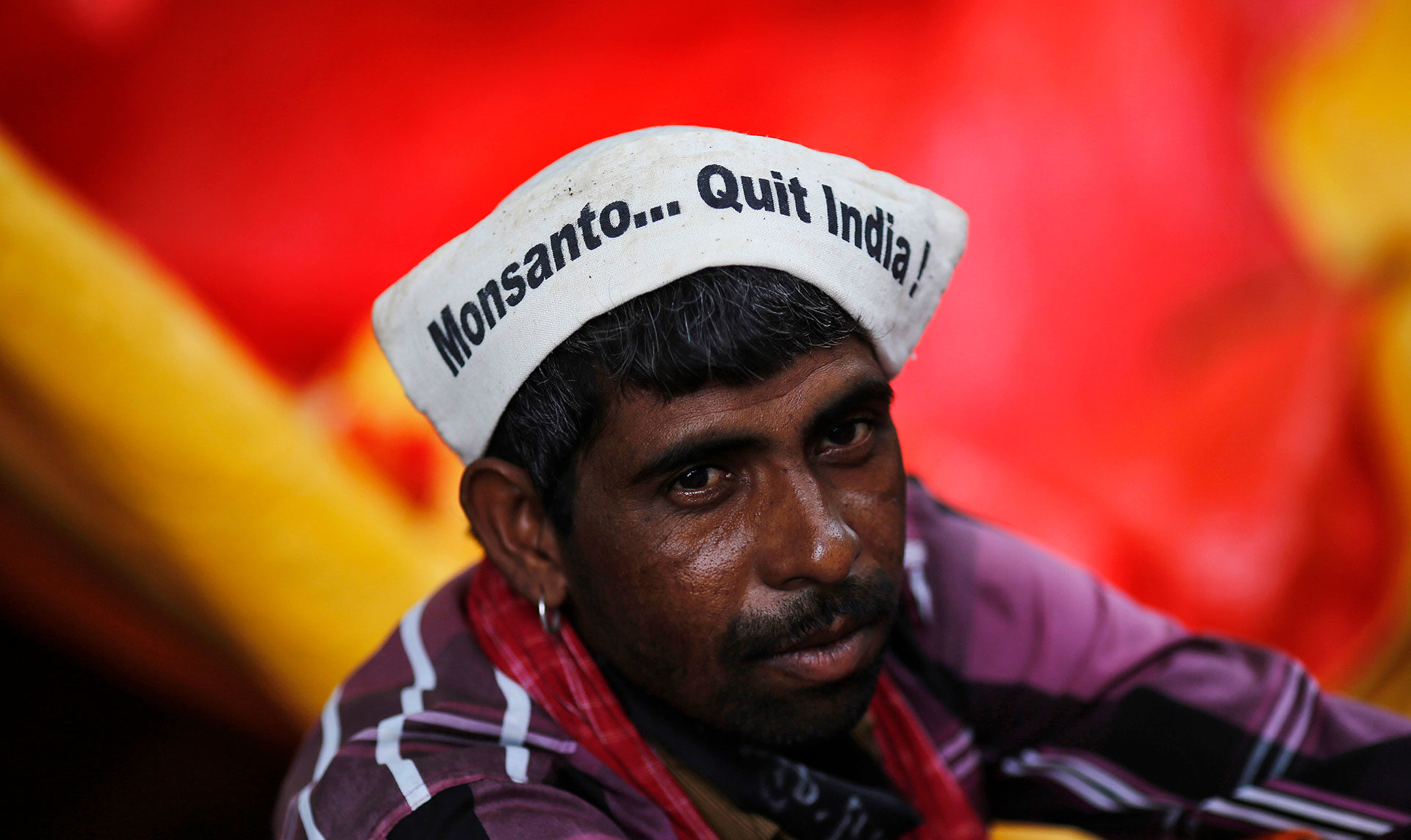
The Indian businessman already had $54 million in initial funding from an American private equity investor. Rao had also locked in a long-term licensing agreement with Monsanto Co, the world's largest seed company, for the technology used in genetically modified cotton seeds that made up the majority of his annual sales.
Two months after publishing his initial public offering plan, Rao gambled. He sent one of his executives to negotiate a 10 percent cut in royalties with Monsanto. The multinational said no.
The outcome of that meeting ignited a corporate battle that has left Rao's IPO plans in tatters and drawn in the Indian and U.S. governments. More ominously, the fight has disrupted India's $1.8 billion-a-year seed industry, with Monsanto saying it may abandon the market.
Monsanto's Indian joint venture last July withdrew its application to introduce a new generation of cotton seed technology to India. The existing version, in India for a decade, is losing effectiveness against bollworms, which can wipe out crops. If another company doesn't step into the breach, agricultural economists warn the dispute could damage India's cotton-growing sector - which recently surpassed China's as the world's biggest and last year accounted for more than a quarter of global output, with a value of over $8.5 billion.
To an outsider, Rao's decision to take on Monsanto in a David-and-Goliath battle may seem hard to fathom. But the rules of doing business in India have changed. With the rise to power of Prime Minister Narendra Modi in 2014 on a groundswell of Hindu nationalism, newly assertive right-wing groups, suspicious of foreign influence and particularly outspoken against large multinationals like Monsanto, now hold sway in the government.
The leaders of these groups operate under the umbrella of the powerful Hindu nationalist group known as the Rashtriya Swayamsevak Sangh, or RSS, Hindi for "national volunteer organization." They speak of returning India to an ancient, Hindu glory that was ravaged by foreign imperial powers. More pragmatically, they're amassing power.
Modi himself first attended RSS meetings at the age of 8 and was propelled to power with the group's help. A series of crucial ministries, including agriculture, are now run by ministers who are members of the RSS and its affiliates. Members of these Hindu nationalist groups also form a network of influential mandarins who seldom surface in public. They have the ear of the prime minister and those around him.
A lean, moustachioed man, Rao denies seeking the support of the RSS or working in tandem with the group, which wants indigenous varieties of cotton seed to replace Monsanto's products. But RSS powerbrokers - including the agriculture minister himself - told Reuters that Rao approached them for help in his battle with Monsanto. And they say they were happy to weigh in.
The agriculture minister, longtime RSS member Radha Mohan Singh, says his decision to intervene in the dispute was driven by the need to serve the interests of all Indian farmers, not just Rao.
The timing of Singh's actions, though, was telling. In the months after the meeting between Monsanto and Rao's man in Mumbai, the agriculture ministry first challenged and then slashed the royalties Monsanto is able to charge in India. The ministry called for an antitrust investigation into alleged monopolistic practices by the company. It also floated the idea of a compulsory licensing regime that would all but force Monsanto and other firms to hand over their proprietary technology to major Indian seed companies that applied for licenses.
Prime Minister Modi hasn't publicly commented on the matter. After the U.S. ambassador intervened last year, according to two people familiar with the dispute, the Indian government suspended the compulsory licensing proposal. The other measures remain in place.
After years of seeking more leverage with Monsanto, Rao found in the rise of Modi and the RSS an opportunity to challenge the company's domination of the Indian market. It was against this backdrop that he dispatched senior company executive P. Sateesh Kumar, a Ph.D. in agricultural genetics, to Monsanto's Mumbai headquarters in 2015.
At the time, Rao's company, Nuziveedu Seeds Ltd, was behind on royalty payments to Monsanto and on its way to racking up, by Monsanto's calculations, more than $20 million in debt. And its American investor, Blackstone Group LP, was waiting for the IPO to go through. Nonetheless, Kumar sat down in a corner conference room on the fifth floor and conveyed Rao's demand for a reduction in royalties. Monsanto delivered its answer there and then: That wasn't going to happen.
Read the full story: here.



Reader Comments
to our Newsletter